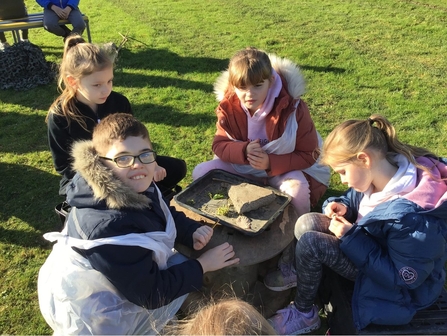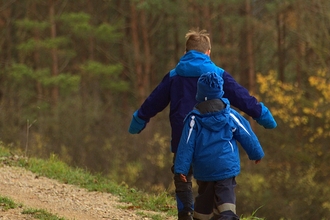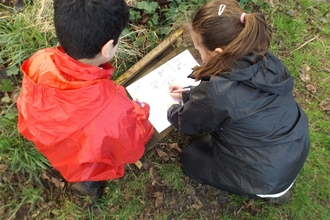Stockwell Academy is already seeing the benefits of physical changes to the school grounds together with an increase in time spent learning outdoors.

Stockwell Academy
Stockwell Academy’s Nature Friendly Schools journey started in September following the summer break, and what had been for some pupils, an extended break from school since the first Covid-19 lockdown started in March 2020.
The school already had several ideas of how to take forward their outdoor space and after speaking to Andrew, a Nature Friendly Schools education officer from Yorkshire Wildlife Trust, it was agreed to create an outdoor classroom with a fire pit, some hollowed-out trees, an allotment area, an additional firepit near some trees and a herb garden.
During the October half-term break teaching staff set about giving the existing outdoor area a makeover by repurposing grass for a bamboo den and using pallets to create a bug hotel. Plants donated from a garden centre now provide the outline for a closed-off are and deadwood logs encourage our bug hotel and provide seating for the children. With permission the school also raided a skip and repurposed wood, garden waste and even a bath.
Teacher, Mark Hemmerman, said: “Wood from trees that were cut down will be repurposed for the children. My hope is that they will be able to use tools to create tent pegs, sculptures, swing seats and more. The now-bare area can be cleared fully, and we can plant wildflowers to attract bees and other insects. Wood from trees that were cut down will be repurposed for the children. My hope is that they will be able to use tools to create tent pegs, sculptures, swing seats and more, while chippings to the side of the area can form part of the floor for our new outdoor classroom.”
In November 2020, Andrew led some outdoor learning training sessions resulting in teaching staff feeling much more confident, comfortable and open to the idea of adding outdoor segments to learning which is a great step forward for the school which has restarted outdoor learning sessions to increase the amount of time that children are able to spend outdoors across all year groups.
Mr Hemmerman added: “My class had their first ‘forest school’ session which was fantastic. We noted improved communication between the children when undertaking tasks and a willingness to look after the area when it was time to tidy up. We saw children who were initially shy, come out of their shell when presented with fun, small achievable tasks. We saw brilliance in the children's imaginations as they showed evidence of intuition, such as when they created a scarecrow after I told them that birds like to prey on insects. There are elements to work on, such as listening to all voices, but this was something we expected, and we believe that this will improve with frequent sessions. I still can't believe that we have started, and done, so much in only eight school weeks!
“My enthusiasm is still as high as it was at the start and I am really looking forward to seeing the physical changes around the school. My sights are set on the spring term now and I am hoping that we can get all of the classes to do some planting of food and flowers and to get everyone enthused to grow. A special thank you to Andrew from Nature Friendly Schools for all of his ideas, efforts, advice, guidance and training - it has made an impossible task seem possible! Thanks for all of your support and time, it has been brilliant that we have all been able to meet and achieve what we have in a short space of time.”



